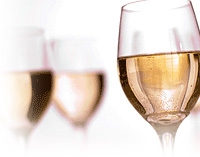Riesling

Style
Germany
German Riesling comes in all levels of sweetness from bone dry to very sweet dessert wines. Although the most common style is still moderately sweet, that is starting to change as the current vogue in Germany is for dry and minerally wines. The label will often offer clues to sweetness: trocken or halbtrocken means dry while spatlese or auslese will almost always be quite sweet. Kabinett will be somewhere in between.
Alsace, France
French Riesling tends to be drier, richer, and fuller-bodied with less apparent acidity and typically a pronounced minerality.
New World
California Riesling was traditionally made to be simple, sweet, and inexpensive. Although some wineries are making drier more elegant examples, the majority of American Riesling is still quite sweet and straightforward.
New Zealand and Australia are having success producing drier, more elegant citrusy examples from cooler-climate vineyards.
Copyright © 2025 TraceGains, Inc. All rights reserved.
Drink Responsibly. Drive Responsibly.
Learn more about TraceGains, the company.
The information presented here is for informational purposes only and was created by a team of US–registered dietitians and food experts. Consult your doctor, practitioner, and/or pharmacist for any health problem and before using any supplements, making dietary changes, or before making any changes in prescribed medications. Information expires December 2025.
